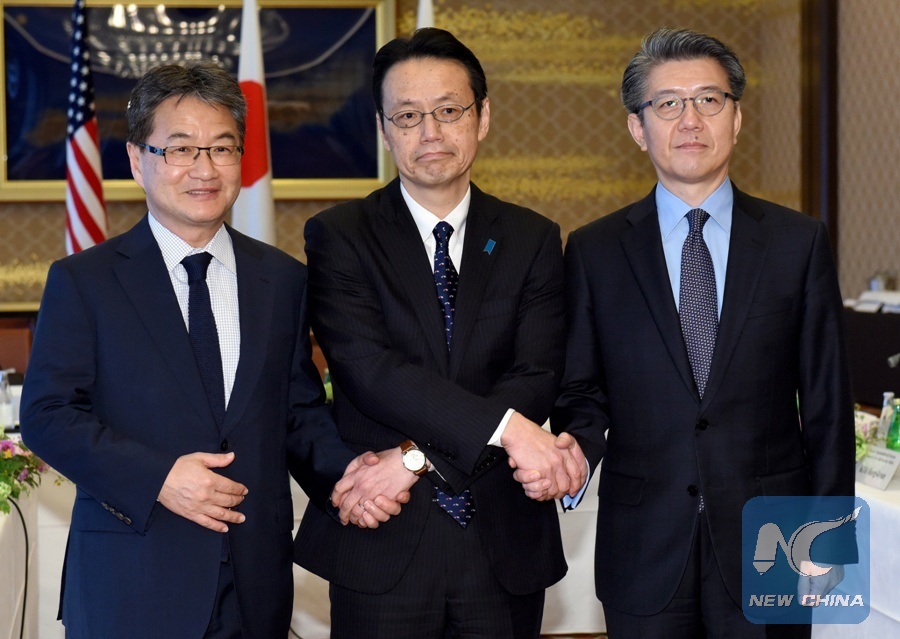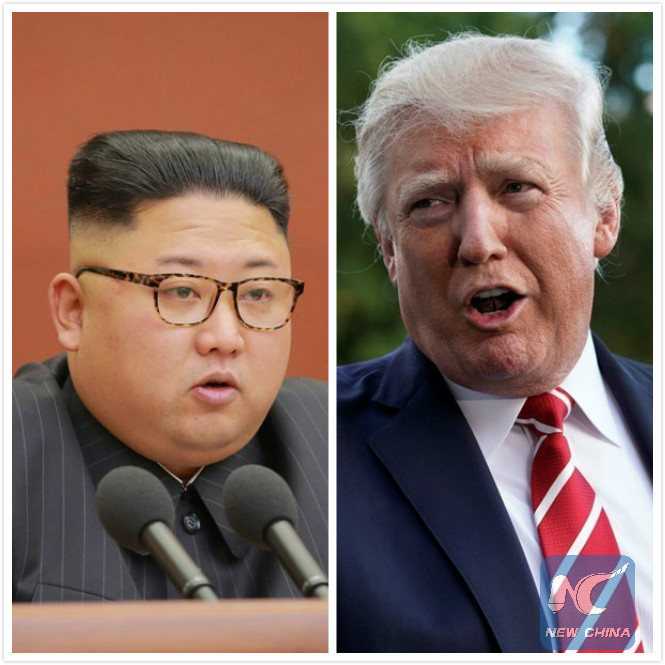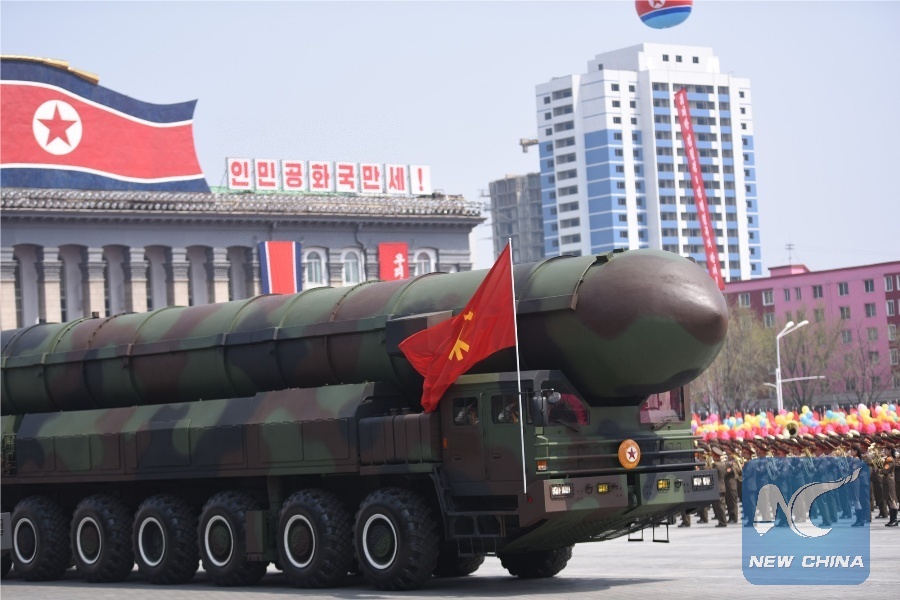
File Photo: (L-R) U.S. special envoy Joseph Yun, Japanese Foreign Ministry's Asian affairs chief Kenji Kanasugi, South Korean special representative Kim Hong-kyun shake hands during a meeting in Tokyo, Japan, April 25, 2017. The senior officials from the United States, South Korea and Japan met in Tokyo amid rising tensions with the Democratic People's Republic of Korea (DPRK). (Xinhua)
WASHINGTON, Feb. 26 (Xinhua) -- The U.S. special envoy for the Democratic People's Republic of Korea (DPRK) policy Joseph Yun will resign from his post for personal reasons, media outlets reported Monday.
Yun, special representative for the DPRK policy and deputy assistant secretary for Korea and Japan, told the CNN that "it was completely my decision to retire at this time."
Secretary of State Rex Tillerson has reportedly "reluctantly accepted his decision and wished him well."
State Department spokesperson Heather Nauert said diplomatic efforts will continue "based on our maximum pressure campaign to isolate the DPRK until it agrees to begin credible talks toward a denuclearized Korean peninsula."
Yun, in his 60s, joined the U.S. State Department in 1985. Once the U.S. Ambassador to Malaysia, he was appointed by former President Barack Obama onto his current post in 2016.
He came to the DPRK last June and brought back released U.S. citizen Otto Warmbier to the United States.

Combo photo of DPRK leader Kim Jong Un and U.S. President Donald Trump. (Xinhua)
U.S. media said the departure of Yun, who has been supportive of solving the Korean Peninsula issues through dialogue, was due to his long disappointment over Donald Trump administration's provocations against the DPRK, and diplomats' lacking of speaking in the government's decision-making process.

Missile force of Korean People's Army attend a military parade in central Pyongyang, April 15, 2017. The Democratic People's Republic of Korea (DPRK) showcased its military muscles by parading all of its most-advanced ballistic and tactic missiles, including a submarine-launched ballistic missile which could strike targets 1000 km away. (Xinhua/Cheng Dayu)
Washington has pushed forward its "maximum pressure" campaign against the DPRK. Trump on Friday announced what he called the "heaviest sanctions" on the DPRK, a move that came amid signs of a growing rapprochement on the Korean Peninsula.

